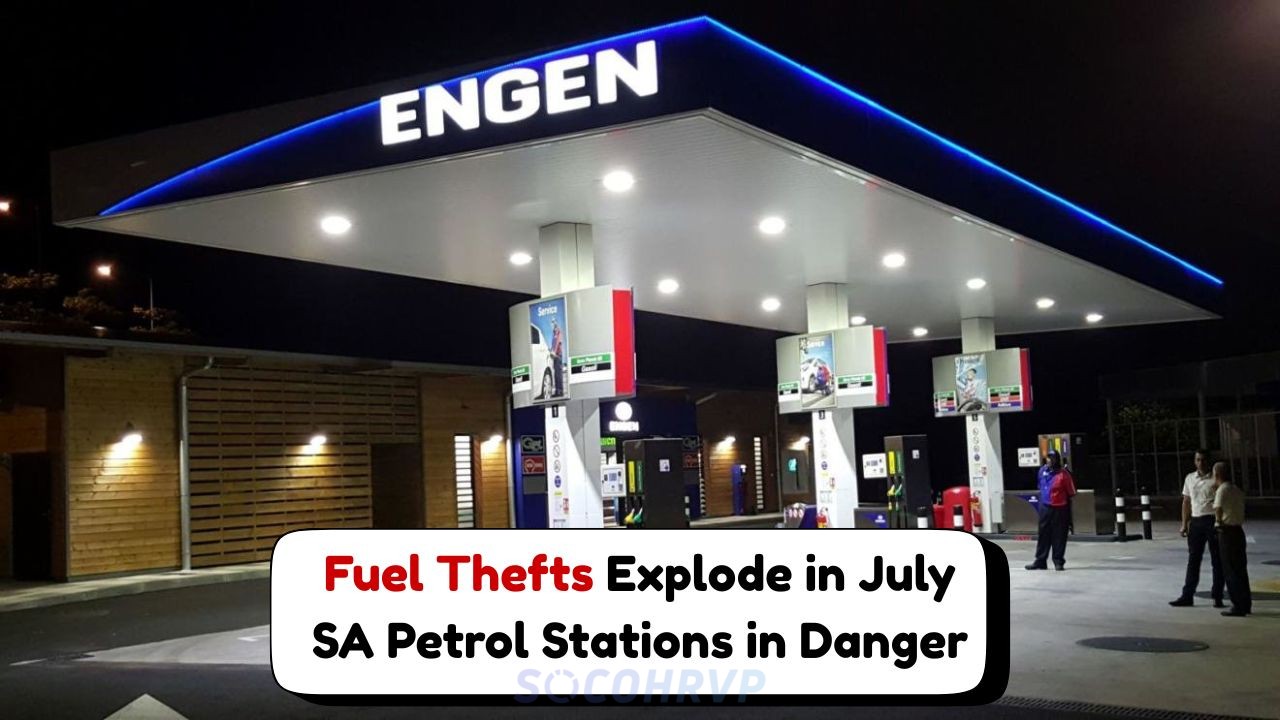SA Petrol Stations Fuel Thefts: In July, petrol stations across South Africa were plagued by an alarming surge in fuel thefts, with over 2,000 reported incidents. This unsettling trend has prompted industry stakeholders to take a closer look at security measures in place and the underlying factors fuelling this epidemic. The rise in fuel theft is not only affecting the profitability of businesses but also trickling down to consumers who may face increased prices as a result. The issue highlights the urgent need for comprehensive strategies to combat this growing menace, involving collaborations between law enforcement, petrol station owners, and technology providers.
Understanding the Scope of South Africa’s Fuel Theft Epidemic
The surge in fuel theft incidents across South Africa is a growing concern that has been steadily escalating. With over 2,000 cases reported just in July, this represents a significant threat to the petrol retail industry. The reasons behind this spike are multifaceted, ranging from economic hardships to organized crime operations. Affected petrol stations are primarily located in urban areas, where the density of both vehicles and stations presents more opportunities for theft. The financial implications are substantial, with businesses losing thousands of rand in revenue, not to mention the cost of repairing damages caused during these thefts. The problem has become so pervasive that industry leaders are calling for government intervention to help mitigate the losses and provide better security infrastructure for petrol stations nationwide.
| Month | Incidents | Loss (Rands) | Region |
|---|---|---|---|
| July | 2,000+ | Millions | National |
| June | 1,500 | Thousands | Gauteng |
| May | 1,200 | Thousands | KwaZulu-Natal |
Key Drivers Behind the Rise in Petrol Station Thefts
To address the issue of soaring fuel thefts, it is crucial to understand the underlying factors driving this increase. Economic instability and rising unemployment rates have undoubtedly played a role, pushing individuals towards desperate measures. Additionally, the organized crime syndicates have found fuel theft to be a lucrative venture, often targeting vulnerable stations with inadequate security. The lack of stringent penalties for such crimes further emboldens offenders. Petrol stations with outdated surveillance systems are particularly at risk, as they offer easy targets for thieves. Moreover, some incidents are carried out by customers who drive off without paying, exploiting the high traffic and sometimes lax monitoring at busy stations.
 Nissan Navara Stealth Debuts 10 July at R695,200 – Is Toyota Hilux Facing Its First Real Challenger?
Nissan Navara Stealth Debuts 10 July at R695,200 – Is Toyota Hilux Facing Its First Real Challenger?
- Economic hardship leading to increased crime
- Organized crime syndicates
- Inadequate security systems
- Weak legal consequences
- Customer drive-offs
Innovative Solutions to Combat Fuel Theft in South Africa
To mitigate the impacts of fuel theft, petrol stations are exploring various innovative solutions. Advanced surveillance technology, such as high-definition cameras and automated license plate recognition systems, are being implemented to deter and capture thieves more effectively. Additionally, some stations are employing security personnel trained to handle theft situations. Collaborations with local law enforcement agencies are also pivotal, ensuring timely response and follow-up on reported incidents. Another promising approach is the use of cashless payment systems, which reduces the risk of drive-offs by requiring prepayment before fueling. These measures, while initially costly, are seen as necessary investments to safeguard the future of the petrol retail industry.
- Installation of high-definition cameras
- Automated license plate recognition
- Trained security personnel
- Collaboration with law enforcement
The Economic Impact of Fuel Theft on South African Businesses
The economic ramifications of the fuel theft epidemic are far-reaching, impacting not only petrol station owners but the broader economy. With losses running into millions of rand, businesses are forced to increase fuel prices to offset the losses, affecting consumers nationwide. The rise in operational costs due to enhanced security measures further contributes to this upward price adjustment. Moreover, the impact extends to insurance premiums, with insurers raising rates for stations deemed high risk. This financial burden strains small to medium-sized enterprises the most, as they struggle to absorb the added costs. Consequently, there’s a pressing need for coordinated efforts to address this issue, protecting businesses and consumers alike.
- Increased fuel prices
- Higher operational costs
- Rising insurance premiums
- Financial strain on SMEs
- Need for coordinated response
Table: High-Risk Areas for Fuel Thefts
| Area | Theft Incidents | Affected Stations | Security Measures |
|---|---|---|---|
| Gauteng | 800 | 50+ | Enhanced surveillance |
| KwaZulu-Natal | 600 | 40 | Extra security staff |
| Western Cape | 400 | 30 | Cashless systems |
Steps Petrol Stations Can Take to Prevent Thefts
While the challenge of fuel theft is daunting, petrol stations can implement practical steps to safeguard their premises. Investing in modern security technologies is paramount, as is training staff to be vigilant and responsive. Establishing a rapport with local police can ensure that stations receive prompt assistance when needed. Additionally, creating community awareness campaigns can empower residents to report suspicious activities. By fostering an environment of vigilance and proactive measures, stations can significantly reduce their vulnerability to theft.
- Invest in modern security systems
- Train staff for vigilance
- Build relationships with local police
- Conduct community awareness campaigns
- Enhance site lighting
Community’s Role in Combating Fuel Theft
The fight against fuel theft is not solely the responsibility of petrol station owners; it requires community involvement. Residents can play a crucial role by staying alert and reporting any suspicious behaviors to the authorities. Neighbourhood watches and community forums can be effective platforms for discussing and organizing collective security efforts. Encouraging a culture of mutual vigilance and cooperation can deter potential thieves and strengthen community bonds. By working together, communities can create safer environments and support local businesses in their efforts to combat crime.
- Encourage neighborhood watches
- Report suspicious activities
- Participate in community forums
- Support local businesses
Integrating Technology in Fuel Theft Prevention Strategies
Incorporating technology into theft prevention strategies is becoming increasingly vital for petrol stations. Advanced systems like AI-driven surveillance and automated payment solutions are leading the charge in safeguarding assets. By analyzing patterns and detecting anomalies, AI can provide insights that help preempt theft attempts. Additionally, the use of contactless payment options can reduce human error and deter walk-offs without payment. These technologies provide a dual benefit of enhancing security while improving customer experience, creating a more secure and efficient environment for both staff and patrons.
- AI-driven surveillance
- Automated payment solutions
- Contactless payment options
- Anomaly detection
- Improved customer experience
Frequently Asked Questions
Why is fuel theft on the rise in South Africa?
Fuel theft is rising due to economic hardships, organized crime, and inadequate security at petrol stations.
How can petrol stations protect themselves against theft?
Stations can invest in modern security systems, train staff, and collaborate with local law enforcement for better protection.
What is the economic impact of fuel theft?
Fuel theft leads to increased operational costs, higher fuel prices, and financial strain on businesses, especially SMEs.
What role can communities play in preventing fuel theft?
Communities can support local businesses, report suspicious activities, and engage in neighborhood watch programs to deter theft.







